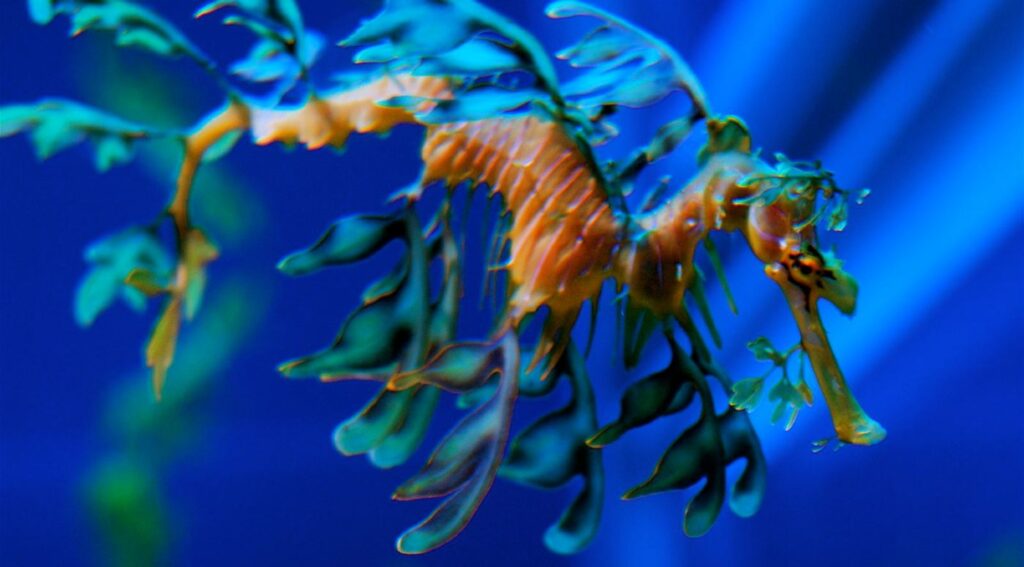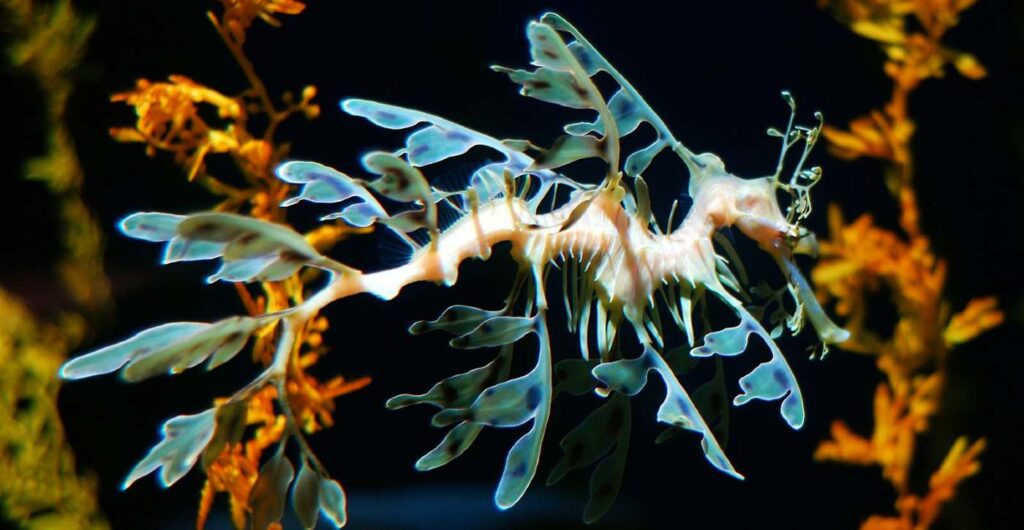
As an example of the majesty of life, the art of camouflage, and the extremes of evolution—one need look no further than the leafy seadragon of South Australia.
Fondly called “Leafies” by the Aussies of Melbourne and Adelaide, it is a member of the genus that includes pipefishes, seadragons, and seahorses, and takes its name from the myriad of leaf-like protrusions along its body which serve only to camouflage it among seaweed stalks and kelp.
Feeding on plankton and small crustaceans, they can grow to almost one foot in length.
For propulsion they have dorsal and tail fins which are actually transparent compared to the leaf-like body parts that do nothing—they gently move the animal back and forth as it swims, mimicking the dancing seaweed around it, much like a chameleon camouflages its movements on land.
The dedication to camouflage and defense is impressive.
In the wild, some individuals were observed remaining still for 68 hours straight. Furthermore, their body is coated in hard bony plates and spikes, ruining the day of a fish tempted to take a bite out of it.
MORE: Curious Whale Nudges Paddle Boarder in Argentina in Stunning Video (WATCH)
However, in a bizarre riddle, according to National Geographic there’s no sure evidence that any other animal preys on them.
Maybe they “beat the game” or maybe, as has been hypothesized with the American pronghorn antelope, they evolved their exquisite protection against a species which no longer exists.

Living solitary lives around 160 feet underwater, the males and females will come together to breed—it’s the male’s responsibility to carry eggs and raise young. The female will lay 250 eggs and deposit them in a kangaroo-like pouch on the male’s tail.
RELATED: Gigantic 438-Year-old Coral Discovered in the Great Barrier Reef in ‘Excellent Condition’
Unsurprisingly, such a charismatic animal is prized as an aquarium species by collectors, and alongside pollution these are the animals biggest threats. Thankfully, the animal is not endangered, and is currented listed by the IUCN as a species of Least Concern.
(WATCH the video about the species below.)
DON’T DISGUISE the Good News—Share It Far and Wide…




















